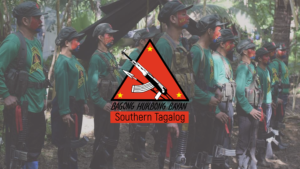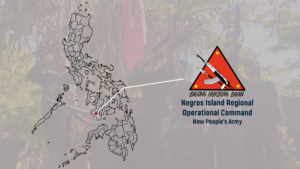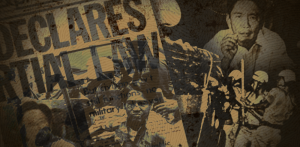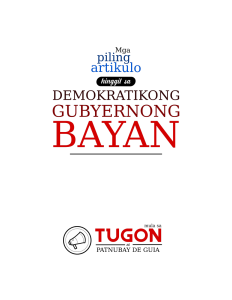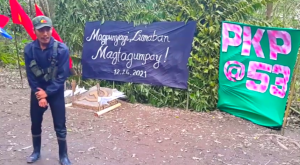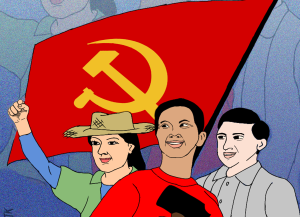Patriotic health workers form new mass organization
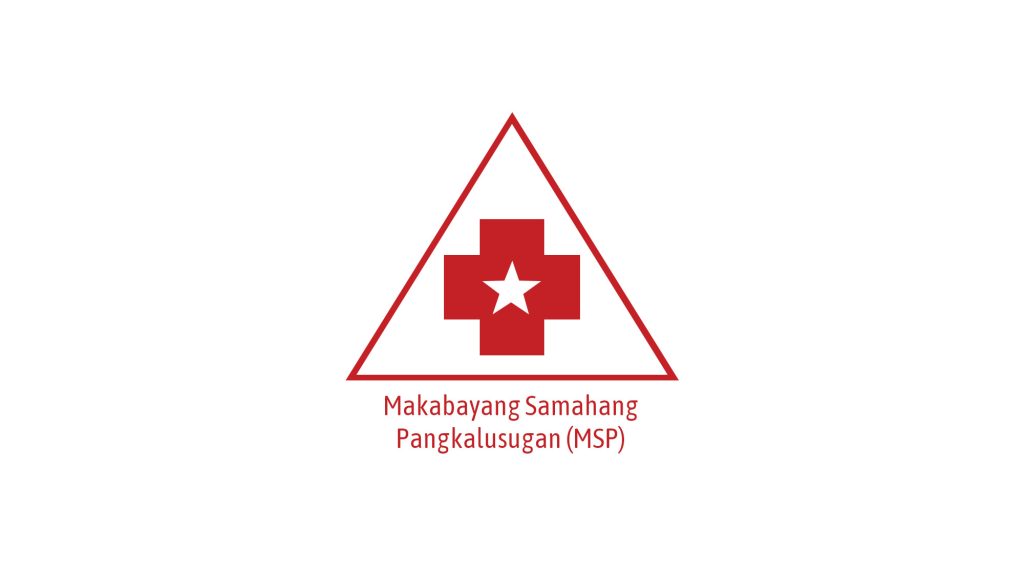
Ang Bayan May 31, 1979 (Volume XI, Number 10)
Progressive members of the health sector established recently a mass organisation to work for the fulfillment of their revolutionary aspirations. This is the Makabayang Samahang Pangkalusugan (masapa), or Nationalist Health Association.
It is the aim of these members of the sector–doctors, nurses, dentists, midwives, pharmacists, medical technicians, sanitary inspectors and others–to take part in the revolutionary movement which is laying the foundation for a national democratic society that would truly look after the health of the Filipino people.
In a document ratified at its first national conference entitled “The National Democratic Program for the Health Sector”, the masapa discussed the people’s state of health, the root causes of their health problems, and ways of cutting the roots of these problems.
The association pointed out that the people’s health problems are part and parcel of the present exploitative system which must be overthrown so that a comprehensive national democratic health system can be established.
The nation’s health is in very bad shape under the U.S.-Marcos fascist dictatorship. Pneumonia and tuberculosis which are now under control in developed countries remain the two top killers of the Filipino people.
The MASAPA gave statistics showing that 80 percent of the national population is malnourished, and that for every 1,000 babies born, 55.3 die in infancy.
Due to the grace lack of health manpower and facilities, 62 out of every 100 Filipinos who die receive no medical attention.
To give an idea of this lack, the MASAPA said that in the rural areas, there is only one nurse for every 20,000 people. It added that in sizeable areas of Mindanao, only one public health physician is expected to serve every 38,520 population.
There is also a serious shortage of hospital facilities. Metro Manila has the most hospitals, but these are not enough to serve the people in the region. Only one hospital bed is available for every 626 people.
It’s worse in the provinces
The situation is worse in the provinces where there are less hospitals. In Camarines Sur, there is only one bed for every 1,712 people, and in the Cagayan Valley region, one bed for every 1,152.
In the face of this serious lack of health personnel and facilities, the U.S.-Marcos regime shows indifference. In the current national budget, the regime allocates only .3 billion to the nation’s health needs while it appropriates .5 billion for the fascist military.
Their knowledge of the deplorable state of health of the Filipino people and its causes brought the MASAPA members together. They are aware that their sector plays an important role in developing a new and progressive health system.
As a preliminary step, the MASAPA adopted a seven-point program at its first national conference on December 30, 1978. The program calls for measures to:
1. Combat the imperialist domination of the Philippine health industry.
U.S. imperialism and other foreign capitalists dominate the health industry of the Philippines. Because of their monopoly, they have reaped huge profits and occupied a strategic position in the entire health system.
From 1967 to 1971, for instance, the Walter-Chilcott Laboratories (Phils.), Inc., made a profit of 1.09 million, or more than 600 percent of its initial investment. Richardson-Merrel (Phils.), Inc., earned a net profit of .4 million, or more than 400 percent of its capital stocks, and Parke-Davis and Co., Inc., recorded profits of .5 million, or more than 200 percent of its initial capital.
Through massive advertising campaigns, the imperialists develop among the people a dependency on their expensive drugs and medical equipment for which less expensive substitutes are available locally. Health workers themselves have been brainwashed into prescribing these drugs.
Enlightened members of the health sector must take an important role in the struggle to break the foreign domination over the health industry and towards nationalization of this industry. Native health knowledge and practices must be developed and elevated to the level of science. Research work on the country’s herbs and other raw materials for medicine must be improved.
Expose and oppose enemy propaganda
2. Oppose the use of health as a tool of the U.S.-Marcos fascist dictatorship.
The U.S.-Marcos regime uses health programs to mask the imperialist exploitation of the country, deceive the people and maintain its rule.
Projects of such front organizations as usaid, panamin, Catholic Relief Services and the Peace Corps are conspicuous in areas of the countryside where the people’s armed revolutionary struggles is raging. Their aim is to show that the U.S.-Marcos regime is taking care of the people’s health when in fact it is neglecting them.
Health workers must carry forward the most vigorous propaganda campaign to expose and oppose the fascist dictatorship’s use of bogus health care, to support and glorify its existence.
Their propaganda movement should be situated within the broad ongoing propaganda waged to make the people aware of the realities of imperialist and feudal rule.
3. Develop health programs to strengthen the revolutionary mass movement in the urban as well as rural areas.
The MASAPA called for the setting up of programs that would fill the needs of the revolutionary movement in the cities and the countrysides.
In the countrysides, such programs must arouse, mobilize and organise the peasantry for the agrarian revolution. They must go hand in hand with the effort of building basic mass organizations of peasants, youth, women, children and cultural activists in the barrios.
In the cities, health programs must contribute effectively to the development of a broad people’s democratic movement that is distinctly anti-fascist and anti-imperialist and supportive of the antifeudal movement in the countryside.
Service in the people’s army
4. Gather the most extensive support of the health sector for the armed struggle.
Health workers can make big contributions to the armed struggle advancing in the countryside. Some may become Red fighters of the New People’s Army. Others without having to join the army can assist in developing the health system in guerilla fronts.
They can conduct training courses in guerilla bases and zones on simple diagnosis and treatment, minor surgery, acupuncture, herbal medicine, first-aid, nutrition and food preservation, and others. They can provide direct medical, surgical, dental and nursing services.
5. Uphold the democratic right of health workers to organize and fight for their genuine welfare.
Like the worker and peasant masses, the petty bourgeoisie to which most health workers belong are exploited and oppressed under the fascist regime. The nurse’s salary is as low as 63.33 a month. Even doctors are badly paid. Government physicians, for instance, receive a monthly minimum wage of only 00. Many resident physicians in city hospitals receive only 50 a month even after five years of intensive medical training.
Unemployment is also rampant among health workers. According to the Philippine Nurses Association, 25 percent of all registered nurses have no jobs.
The regime has been exploiting the problem. Instead of attending to the country’s lack of health services, it has been sending nurses to such countries as Papua New Guinea and Saudi Arabia to earn badly-needed dollars for the regime.
6. Work for a reorientation of the health educational system and propagate a nationalist and democratic health consciousness.
Institutionalized health education is grossly Western-oriented, highly commercialized and isolated from the people. This is the inevitable result of U.S. imperialist domination of Philippine society.
Health workers must wage a determined campaign to reorient the system of health education and remold the values of health students, workers and professionals. Either in schools or in their sphere of work, they must continually expose and oppose colonial and elitist values in health care.
7. Promote solidarity with all progressive health workers abroad and seek their support for the revolutionary struggle.
U.S. imperialism is the ultimate culprit behind the crisis of health in the Philippines. But despite its distinct local manifestation, it is an international phenomenon and is inextricably linked with the problem of world capitalism.
The MASAPA said that health workers could make a special contribution to the forging of an international anti-imperialist unity by promoting solidarity among all progressive health workers of the world.
They must develop the closest links with all progressive health workers in other countries, especially those under puppet governments and fascist dictatorships such as the U.S.-Marcos fascist regime.
While struggling against U.S. imperialism, the health workers must also be alert to the maneuvers of the other superpower, Soviet social-imperialism, which seeks hegemony throughout the world.
The MASAPA also called upon Filipino medical workers who are abroad to return to the Philippines, serve their countrymen, and participate directly in the people’s democratic revolution.

